
Alphabetical Menu
Chronological Menu
|
Eyimofe (This is My Desire) 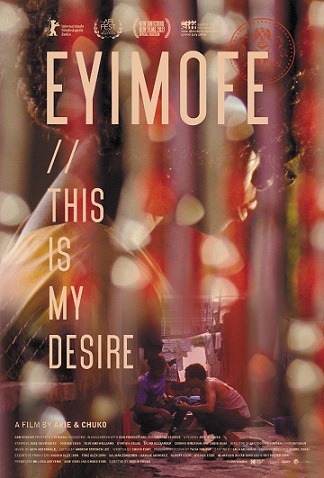 Mofe (Jude Akuwudike), a factory technician, hopes to move to Spain, but he first has to deal with financial strains after the death of some of his family members. Meanwhile, Rosa (Temi Ami-Williams) works two jobs as a hairdresser and bartender to save enough money to move to Italy, but faces financial hardship when her sister ends up in the hospital with a medical issue. Both stories take place in Lagos, Nigeria.
Like Hitchcock once observed, some movies are a slice of cake while others are a slice of life. Eyimofe (This is My Desire) is very much the latter. The screenplay by writer/co-director Chuko Esiri trusts the audience's patience because the event unfolds in an unhurried pace while allowing you to get to know Mofe and Rosa gradually. Even though the plot centers around two different stories in Lagos, they're not really that different. The "events" don't involve violence or anything overly dramatic that add edge-of-your-seat suspense. It's about people who desperately struggle to make ends meet and must deal with obstacles along the way which makes them all the more relatable. Their life isn't easy, and they're struggles are shown unflinchingly. Esiri also avoids melodrama, schmaltz, unnecessary exposition and voice-over narration, so he trusts the audience's emotions as well. Every scene rings true without any contrivance, even during a subplot involving Rosa's relationship with an American tourist, Peter, (Jacob Alexander) whom she begs for financial assistance after sleeping with him. Esiri essentially takes the mundane and turns it into something profound and moving. It's also worth mentioning that the screenplay doesn't jump back and forth between Rosa and Mofe's story which would've made the film too choppy and convoluted; it merely them in separate chapters, Spain and Italy. Both stories are equally captivating glimpses into the lives of everyday people in Lagos. Both Jude Akuwudike and Temi Ami-Williams give natural performances which add to the film's realism. At times, you'll feel like you're watching a documentary. The cinematography isn't too showy or stylish nor does it resort to shaky-cam. It all feels organic, understated and, most importantly, true-to-life. Moreover, it deals with socio-economic issues that's reminiscent of Ken Loach's films, like Ladybird, Ladybird or the recent Sorry We Missed You. At a running time of 1 hour and 50 minutes, Eyimofe (This is My Desire) is an engrossing and unflinchingly honest slice-of-life that's just as powerful as a Ken Loach film. 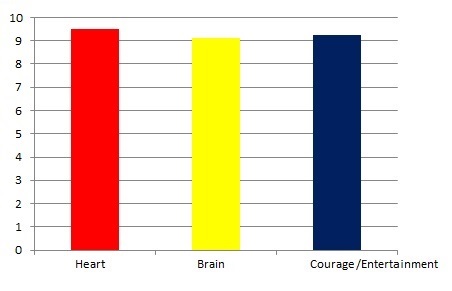 Here After 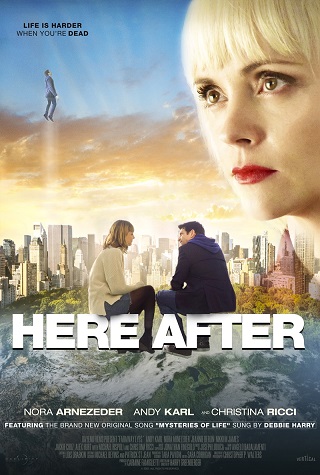 Michael (Andy Karl) dies in a car crash shortly after he breaks up with his girlfriend. In the afterlife, he meets the gatekeeper of the afterlife, Scarlett (Christina Ricci), who informs him that in order for his soul to move onto the next phase, he must go back to Earth as a ghost and find a soulmate to come with him. He does find a soulmate after many dates, but the problem is that she's a human, Honey Bee (Nora Arnezeder), not a ghost. Like M. Night Shyamalan's Old, Here After has an intriguing premise that squanders its opportunities to tell a profound, moving and compelling story. The screenplay by writer/director Harry Greenberger blends sci-fi, romance, comedy and drama in a very clunky, contrived and uneven way. The stilted dialogue doesn't help matters, either. The film begins awkwardly with a lengthy-voice over and takes a while to get to the meat of the narrative which finally kicks into gear when Michael meets Scarlett. She has an interesting personality, but she's not given much of a backstory and seems like she's just there because the plot requires her to be there as exposition. Once Michael goes back down to the streets of NYC as a ghost and hits the dating scene, that's where the film begins to take a nosedive as it bites off more than it could chew. He visits his apartment where he hears what his parents think about him and how they're grieving him. He also meets his deceased friend, Angelo (Michael Rispoli), who's now a ghost. When he hits it off with Honey Bee, it happens so quickly and the audience barely gets a chance to get to know her. It's hard to get the true sense that they're soulmates; perhaps if their conversations were deeper and you could feel their connection more, it would've been more palpable. Also, there's a montage with all the women that Michael dates one after the other before he gets to Honey Bee which reflects how the film isn't very interested in slowing down and humanizing its characters or exploring their relationships deeply. Like in Old, there's too much explained, which leaves very little to the imagination, but there are still many important questions left related to the issues that it brings up which remain unexplored. The performances are decent, but the screenplay doesn't give anyone enough of a window into their character's heart, mind and soul to make a strong enough impact to enliven the film. The pacing feels uneven at times and some scenes, like the initial voice-over, are too long while others, like the snippets from Michael's dating life, are too short. If the running time weren't 2 hour long, Here After wouldn't drag as much, especially after the 90 minute mark when it begins to overstay its welcome. It's not nearly as poignant or haunting as the upcoming Nine Days nor as imaginative, bold or breathtaking as What Dreams May Come. If there were double features around these days, Here After would be the B-movie and Nine Days would be the superior A-movie. 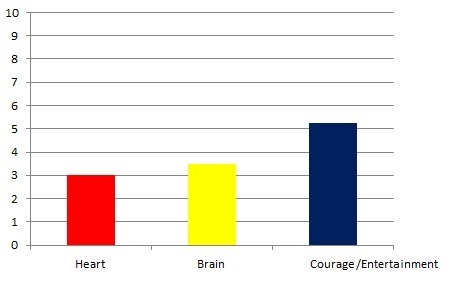 Midnight in the Switchgrass 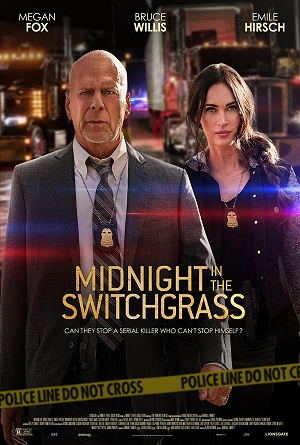
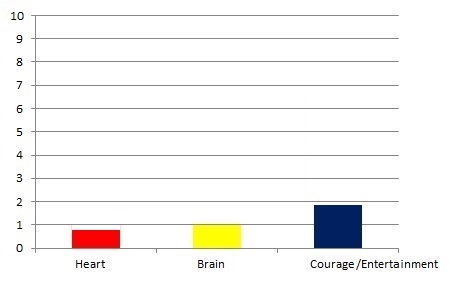 Old  Guy (Gael García Bernal) takes his wife, Prisca (Vicky Krieps), and two kids, Trent (Nolan River) and Maddox (Alexa Swinton), on a vacation to a Caribbean resort where the resort's manager (Gustaf Hammarsten) convinces them to spend time on a private, quiet beach. Other resort members join them including Madrid (Francesca Eastwood), Patricia (Nikki Amuka-Bird) and her husband, Jarin (Ken Leung), Mid-Sized Sedan (Aaron Pierre), Charles (Rufus Sewell) and his wife, Chrystal (Abbey Lee), daughter, Kara (Kylie Begley) and his mother, Agnes (Kathleen Chalfa). Strange events occur that put their lives in jeopardy. Old has a compelling premise that opens the door for suspense, horror and intrigue, but the weak screenplay by writer/director M. Night Shyamalan doesn't even come close to entering any of those doors. He introduces the characters in a very lazy way by having Trent ask the strangers on the beach for their name and occupation. Unsurprisingly, their occupations become crucial to the plot. The characters, too, are crucial to the plot, but that's all that they are: plot devices and caricatures at best. Shyamalan seems less concerned about developing them into complex human beings and more about moving on to the next plot event. If he doesn't treat them as human beings, then how is the audience supposed to? Also, it takes too long for the characters to realize that something unusual is happening to them because, by then, the audience has already noticed it. Why treat the audience like they're stupid? It's an insult to their intelligence. He leaves very little to the imagination unless you count the gore that he leaves off-screen during a few intense scenes. The ending is foreshadowed at least twice, so it's really not that much of a twist, but even without the foreshadows, the ending's beats don't land because it feels too rushed. Some revelations get over-explained while others remain under-explained, so Shyamalan doesn't quite have a good handle on exposition. Tonal shifts lead to whiplash as the beginning has some comic relief which quickly dissipates into unintentional humor as Old gets increasingly preposterous. This is the kind of movie where you can feel the wheels of the screenplay turning from start to finish. On a positive note, the scenery looks nice with picturesque shots of the ocean, cliffs, rocks, coral and sand. So, it would be easy to argue that the most interesting character is the beach itself. Vicky Krieps and Gael García Bernal try their best to rise above the material, but they're not working with enough to succeed in doing so. A subplot involving their marital problems feels contrived and underdeveloped. The older versions of Trent (Alex Wolff) and Maddox (Thomasin McKenzie) are very well-cast because they physically resemble the younger versions. Rufus Sewell is charismatic as usual, but he's stuck with very inane dialogue like when he randomly and repeatedly asks for the title of a movie starring Jack Nicholson and Marlon Brando. It's hard for the audience to take any of the characters seriously no matter how hard the actors and actresses try to breathe life into their roles. There's nothing wrong with watching a shallow popcorn movie as long as it's at least fun and suspenseful on a palpable, visceral level. Shyamalan takes an interesting concept, teases the audience and then doesn't take his ideas anywhere interesting or profound. Ultimately, Old is like Jaws without the horror and suspense or like The Exterminating Angel without the intellectual depth and imagination. While watching it, it's hard to sense that it's based on a novel.  Settlers 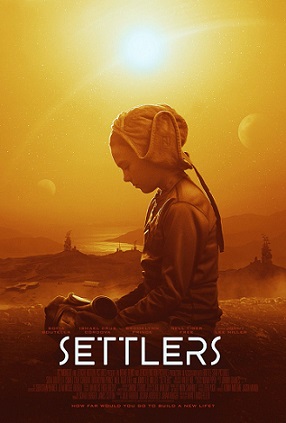 In the distant future, Reza (Jonny Lee Miller) lives with his wife, Ilsa (Sofia Boutella), and daughter, Remmy (Brooklynn Prince), on a farm on Mars. Remmy was born on Mars after Reza and Ilsa arrived there because their home planet, Earth, was destroyed. A stranger, Jerry (Ismael Cruz Córdova), disrupts their peace when he shows up out of nowhere and claims that their farm rightfully belongs to him. The screenplay by writer/director Wyatt Rockefeller keeps the plot very lean and threadbare while eschewing a lot of exposition when it comes to Reza and Ilsa's life on Earth, how they ended up on Mars and how Earth was destroyed. He essentially skips the first act and jumps right into the second act. That choice would've been forgivable if leaving so many basic questions unanswered weren't so frustrating. Even a very crucial scene where something happens that changes the course of the plot is shown off-screen and implied. A lean plot worked in Gravity because there was enough suspense, action and drama going on on-screen that it didn't need the extra padding and backstory. Also, Gravity doesn't jump forward in time like Settlers does. All of a sudden, after a tragedy that won't be spoiled here, the film jumps years ahead when Remmy is a young woman (now played by
Nell Tiger Free). Yet again, Rockefeller leaves questions unanswered about what life had been like for Remmy during that jump in time. Like M. Night Shyamalan in his recent films, especially Old, Rockefeller doesn't know where to take his ideas to, and the few ideas that are present on-screen feel uninspired and unimaginative. There's also not nearly enough comic relief or thrilling scenes which makes Settles feel monotonous. The performances by Jonny Lee Miller, Sofia Boutella, Brooklyn Prince and, later, by Nell Tiger Free, are decent enough to add some emotional depth that the screenplay itself lacks. They definitely help to make their characters seem like a family, even in the brief scenes that they're bonding together before Jerry arrives. The set design along with the landscape adds some style and provides some atmosphere which at least keeps your eyes glued to the screen. At a running time of 1 hour and 45 minutes, Settlers is breathtaking and visually stylish, but unimaginative, underwhelming and, ultimately, forgettable. 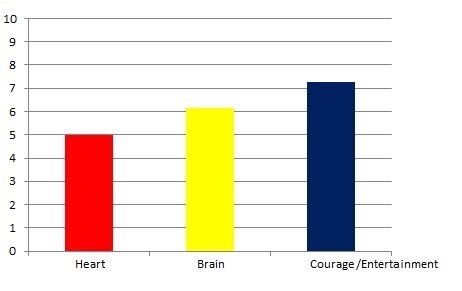 Snake Eyes: G.I. Joe Origins 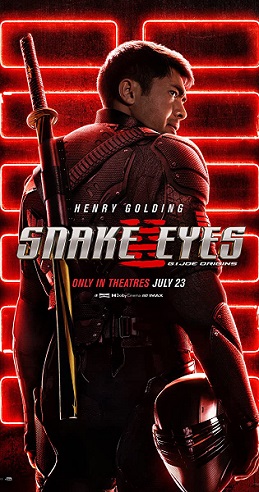 Years after witnessing the Cobra clan kill his father (Steven Allerick), Snake Eyes (Henry Golding) joins the Arashikage clan where Kenta (Takehiro Hira) trains him to be an assassin. Kenta promises him that he will help him to find his father's killer and to avenge his death. As an origin story, Snake Eyes: G.I. Joe Origins doesn't have enough going for it to make you hungry for Snake Eyes next adventure. The prologue barely shows the relationship between Snake Eyes during his childhood and his father; the Cobra clan assassinates him within the first few minutes before the film jumps forward in time to Snake Eyes as an adult. Without establishing that father/son bond, it's hard for the audience to connect to Snake Eyes. To be fair, though, no one goes to an action movie expecting to be moved on an emotional level---that's just the potatoes while the action sequences are the meat. The screenplay by Evan Spiliotopoulos, Joe Shrapnel and Anna Waterhouse offers more meat than potatoes, so you'll find plenty of action. Most of it is mind-numbing, though, far from spectacular, and eventually becomes tedious and nauseating. There's also not nearly enough comic relief and, when it does show up, it's ephemeral. If Snake Eyes: G.I. Joe Origins had poked more fun at itself and had some wit or maybe some campiness, it would've been more exciting rather than so dry and dull. Also, there are too many characters and none of them are particularly memorable, even Snake Eyes himself. When it comes to the action sequences, the camerawork and editing make it hard to see all of the fights clearly, and it doesn't help that many of them take place at night. Some of the set designs look quite slick and even dazzling, especially on an IMAX screen, which gives the film an epic scope and gives it plenty of style much like the impressive production design of John Wick. At least John Wick, which is also a revenge tale, managed to be a lot more fun, witty and wildly entertaining. The same can't be said for Snake Eyes: G.I. Joe, although there are two brief scenes involving giant snakes which are concurrently exhilarating and terrifying. Unfortunately, Samara Weaving is wasted in the role of Scarlet and barely has any screen time. Henry Golding exudes charisma, but the vapid screenplay doesn't put it to good use and even diminishes it more often than not. At a lengthy running time of 2 hour and 1 minute, Snake Eyes: G.I. Joe Origins is a shallow, bland and underwhelming B-movie with tedious, nauseating action and stylish production design. 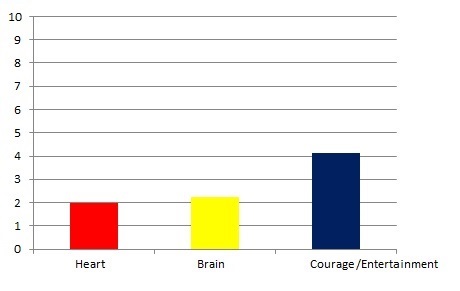 |